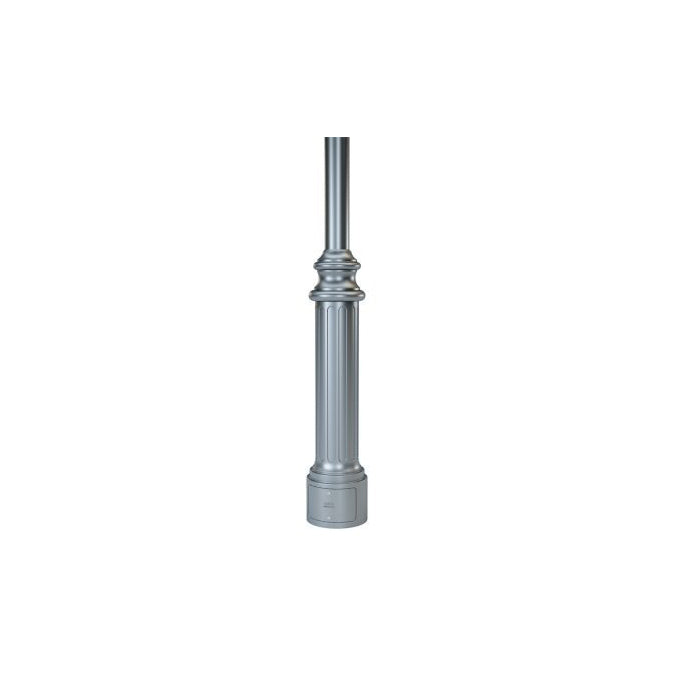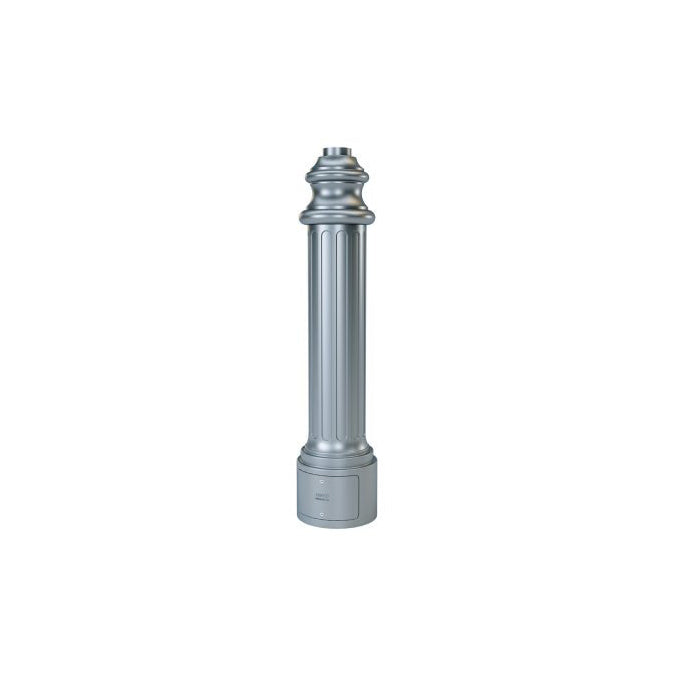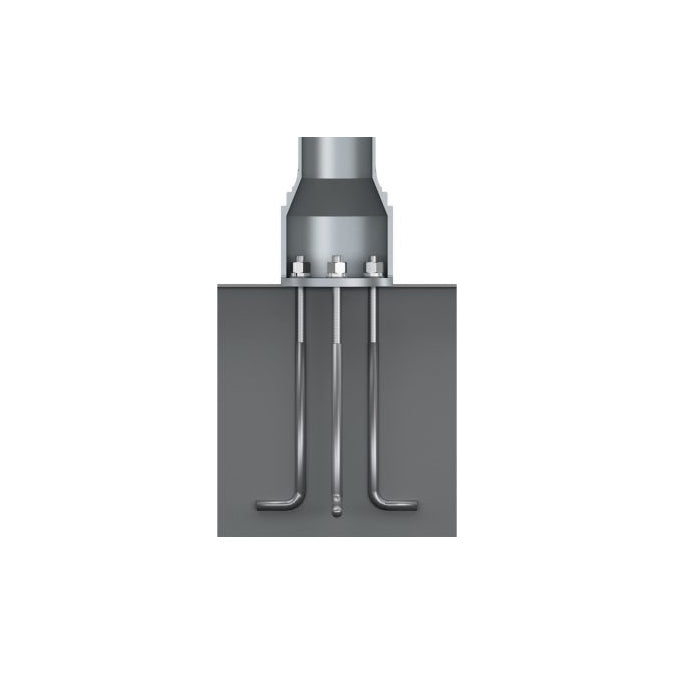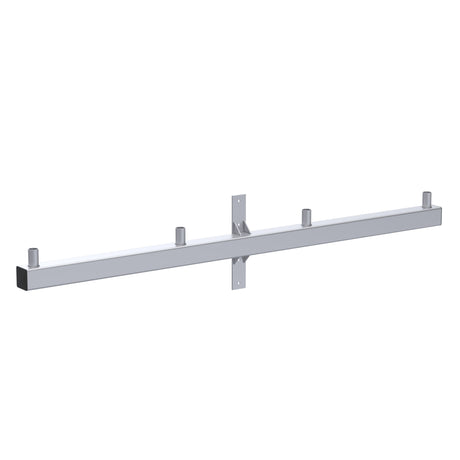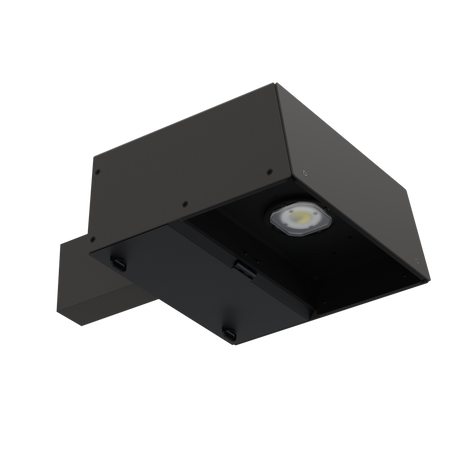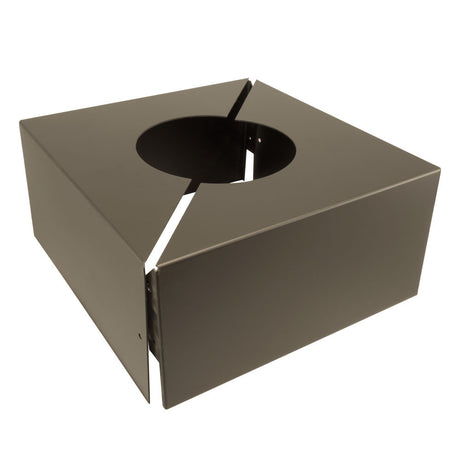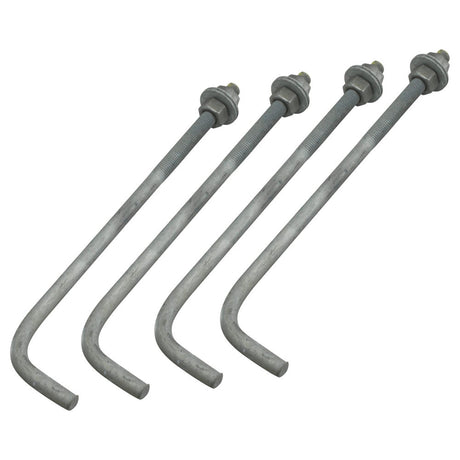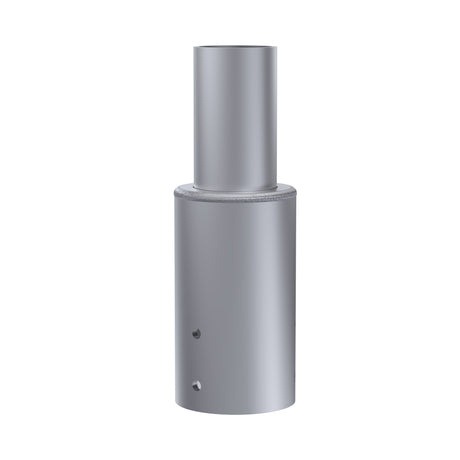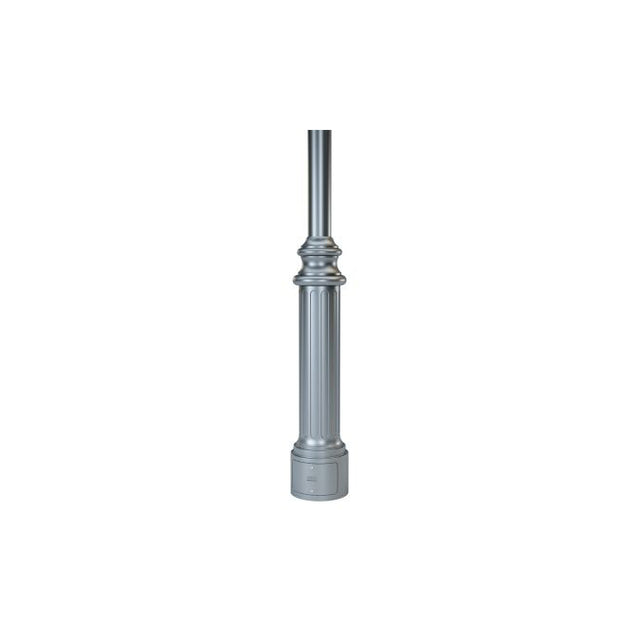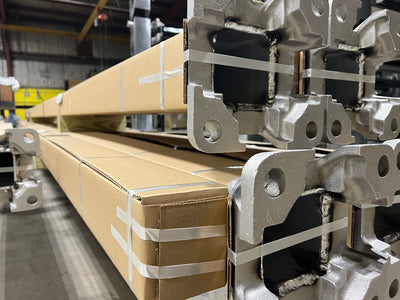10' Tall x 4.0" OD x 0.125" Thick, Round Straight Aluminum, Decorative Georgetown Style Anchor Base Light Pole
Product is backordered and will ship as soon as it is back in stock.
Couldn't load pickup availability
Considerations
Considerations
LPP light poles, brackets, and arms are engineered according to AASHTO standards and accepted commercial criteria. Proper selection for an application is based on information such as EPA, wind zone, mounting height, and other attachments (such as banner arms and flags). This information is necessary to ensure proper engineering. LPP and its vendors assume no responsibility for proper loading analysis and/or product selections. Design information (such as EPA charts and wind maps) found on our websites and selection guidance offered by LPP customer support representatives are provided as general guidelines only. The customer remains solely responsible for proper selection of the light pole, luminaire, and/or related accessories that adhere to all applicable requirements, including (but not limited to) EPA design criteria, job specifications, and engineering requirements. To ensure proper selection of the light pole, luminaire, accessories, and/or foundation, LPP recommends the customer consult a qualified engineer to analyze the loading and design criteria for the specific application.
What about light pole vibration?Light pole vibration problems are caused by environmental factors that vary by geography. They do not result from improper materials and/or poor manufacturing processes. If you have concerns about light pole vibration for a specific project you are working on, please contact LPP customer support.
We recommend vibration dampeners be used when (1) light poles are being installed on a parking ramp, deck, bridge, pier, airport, train or subway hub/terminal, or known problem area, (2) a load of 0.75 EPA or smaller is going on the light poles and (3) light poles are being used as camera supports and/or will have non-standard appendages attached to them. The LPP warranty excludes light pole failure caused by harmonic vibration.
What about estimated production lead times?Estimated manufacturing lead times are the best estimate based on current business conditions and may change due to factors including factory capacity and availability of component parts such as base castings, fabricated parts, electronic components, and other factors.
What are LPP's cancellation and return policies?It’s our goal that all LPP customers are completely satisfied with their products. We take extra care during the quotation and order processing stages and work with our customers to verify that the ordered bill-of-material fits the application requirements. Very few of our orders are ever cancelled or returned, and that’s because we want your project to run as smoothly as you do.
With that said, we understand that there are unforeseen circumstances that may require order cancellations or returns.
Any order changes and/or cancellations prior to shipment must be requested (in writing) within 24 hours of the order being processed to avoid restocking fees. Order cancellations after 24 hours are subject to 50-90% restocking fees, depending on where the order is at in the production cycle.
For products that have shipped, no product may be returned without a completed Return Materials Authorization ("RMA") form that can be requested in writing at quotes@willbrands.com. We will not accept any returned product without an RMA and no returned product will be accepted until it has been inspected and determined to meet the criteria stated below. At customer's written request and cost, products not accepted for return will be shipped back to customer. The return policy applies only to products purchased from LPP.
- Returns must be within 15 days of delivery date.
- Product must be returned, shipping prepaid, in original packaging and be in unaltered, like-new condition.
- The return must include all original components.
- Refunds for unaltered, like-new products will be processed in the ordinary course for processing payables and may take up to one month.
- A 50% restocking fee applies to all returned LED fixture, light pole, and bracket products.
- In addition to the 50% restocking fee, the customer is responsible for original outbound freight charges.
Product Specifications
- Pole Shaft - Corrosion resistant 6063-T6 aluminum alloy in round straight aluminum tube.
- Pole Top - Available options include 2-3/8" or 3" x 4" pole top tenons. Custom drilling and top caps available upon request.
- Anchor Base - Structural cast aluminum one-piece 10" Georgetown style decorative base made of 356-T6 alloy. Includes ground provision.
- Handhole / Base Door - 5" high x 8" wide door for anchor bolt and wire access.
- Anchor Bolts - Anchor bolts conform to AASHTO M314-90 Grade 55 and are provided with four hex nuts, four lock washers and four flat washers. Bolts have an "L" bend on one end and are galvanized a minimum of 10" on the threaded end per ASTM A153.
- Hardware - All structural fasteners are galvanized high strength carbon steel. All non-structural fasteners are stainless steel.
- Finish - Powder coat finish consisting of weather resistant triglycidyl isocyanurate (TGIC) polyester thermoset powders that are electrostatically applied, oven cured and bonded to a minimum dry film thickness of 2.0 mils.
- Design Criteria - All Effective Projected Area (EPA's) are calculated to 1994 AASHTO and are to be used with the 1994 AASHTO map provided. These EPA's cannot be used with newer maps. Please contact the manufacturer if newer AASHTO calculations or other local building codes are required.
-
Spec Sheet
-
Mounting Height (ft)
-
OD Base (in)
-
OD Top (in)
-
Bolt Circle on Center (in)
-
Anchor Bolt Size (in)
Commercial Design Criteria
| Wind Speed | Max EPA (sq ft) | Max Weight (lb) |
|---|---|---|
| 70mph w/ 1.3 Gust | 12.8 | 100 |
| 80mph w/ 1.3 Gust | 9.4 | 100 |
| 90mph w/ 1.3 Gust | 7.1 | 100 |
| 100mph w/ 1.3 Gust | 5.5 | 100 |
| 110mph w/ 1.3 Gust | 4.5 | 100 |
- The total combined EPA and weight of all fixtures, brackets and attachments mounting to a light pole cannot exceed the EPA and weight rating for a specified pole.
- Standard EPA (Effective Projected Area) and weight values are based on Standard Commercial Criteria (with 1.3 gust factor) for side and top mounted fixtures only.
- Satisfactory performance of light poles is dependent upon the pole being properly attached to a supporting foundation of adequate design.
Note: Additional sizes and configurations are available upon request. Specifications are subject to change without notice.
-
Does LPP offer pricing discounts?
The prices displayed on our website are based on low-quantity orders. While this allows for easy ordering of our most popular items, price discounts are available when you request a quote from our project support team. This is especially the case for light poles, as significant freight efficiencies can kick in at quantities as low as three units for some models.
We encourage lighting professionals and resellers to contact us for a quote on all projects to receive our best possible pricing at a given product quantity.
-
What about banners and flags?
Hanging signs, banners, flags and other non-standard attachments on light poles changes the pole's EPA rating and increases the likelihood of vibration. Our published EPA data and engineering criteria do not allow for these added stresses, which could cause safety problems and result in light pole failure.
If you plan on using any of the above non-standard attachments on your light pole project, please make special note of this during the quotation and design stages. This information needs to be incorporated into the design and light pole selection process.
-
What is EPA and loading weight?
EPA is one of the most important structural and safety considerations for outdoor pole lighting. It stands for Effective Projected Area and, along with attachment weight, helps calculate the wind force on the exposed area of light fixtures, brackets and other pole attachments.
The total EPA and weight of all light pole attachments cannot exceed the light pole's maximum allowable EPA and weight for a given wind zone and design criteria. To ensure proper selection of a light pole, we recommend that the customer consult a qualified engineer to analyze the loading and design criteria for the specific application.
-
What is Wind Zone and Engineering Criteria?
Local building codes and industry standards work together to identify the Wind Zone for a given region. The above map provided by LPP is intended to be a general guideline for standard commercial projects. Please review the map for special notes and considerations.
Local building requirements, such as the 2017 South Florida Code, use specific engineering criteria to calculate wind zone and pole requirements. Similarly, other design criteria, such as AASHTO 2001 and 2009, use unique standards as they relate to pole engineering.
LPP has decades of experience designing solutions for all engineering standards, including AASHTO, FL Code and Commercial Criteria. Please let us know if a specific standard is required for your application. This information needs to be incorporated into the design and light pole selection process.
-
What is harmonic vibration?
Light pole manufacturers and industry experts have identified certain applications that may cause a phenomenon known as Harmonic Vibration. This can result in severe structural damage to light poles, brackets and other metal parts, and often causes failure and safety concerns.
Harmonic Vibration is caused by environmental factors that vary by geography. It is typically unpredictable and does not result from improper materials or poor manufacturing processes. Our warranty specifically excludes light pole failure caused by harmonic vibration.
If you have concerns about light pole vibration for your project, please consult with a local engineer familiar with your environmental conditions and contact our project support team. Common applications that may cause harmonic vibration are:
- Airports, train or subway terminals, parking ramps and bridges
- Decks, piers and coastal regions
- Small EPA loads (typically 0.75 sq ft and smaller)
- Light poles being used as camera supports or having non-standard appendages attached to them

